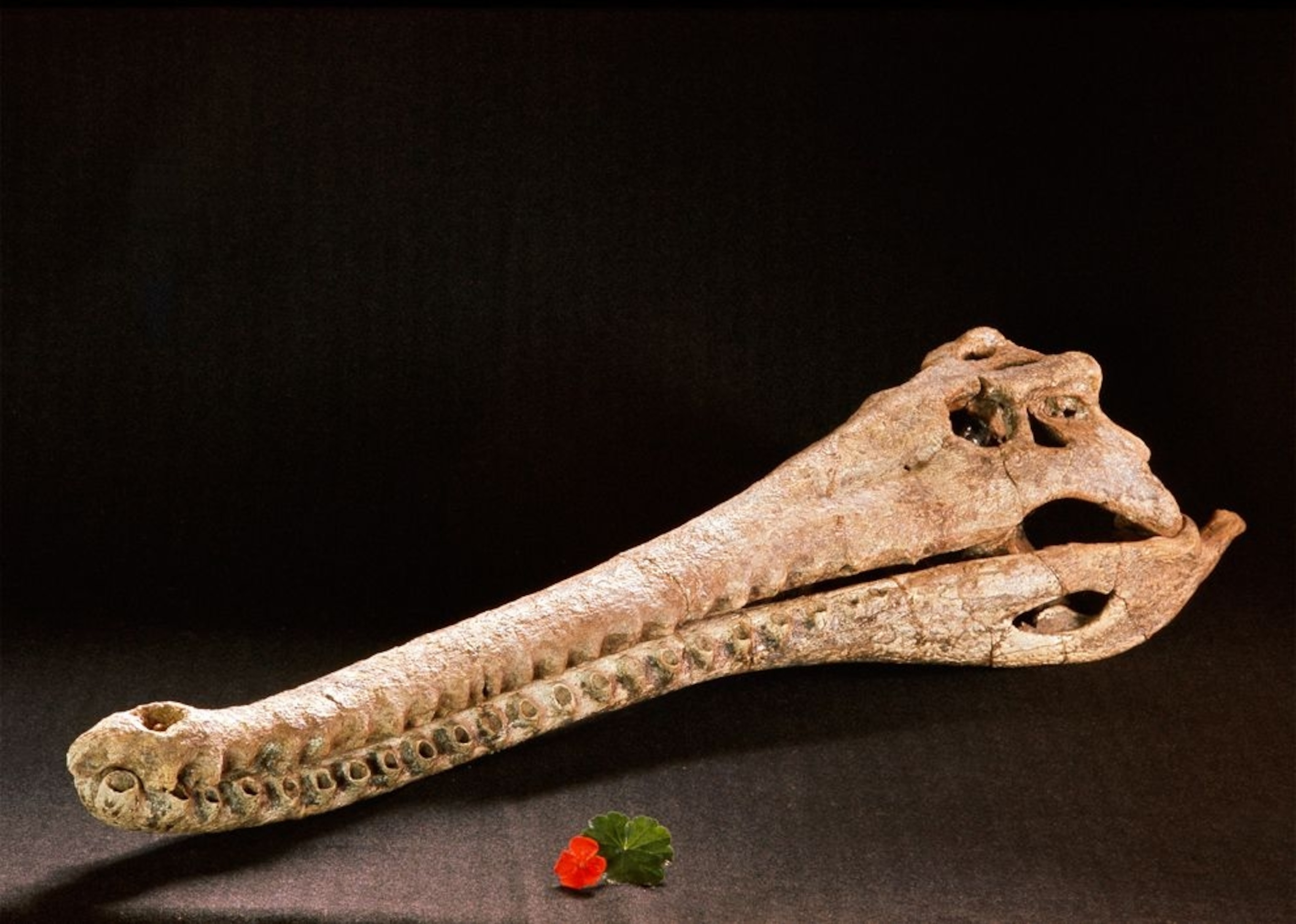
Eating Crocodile Helped Boost Early Human Brains?
A diet of crocodiles and other aquatic animals may have given early humans lots of "good fat," leading to bigger brains, a new study says.
The real-life caveman diet included crocodiles, and eating the reptiles' fatty flesh may have helped early humans evolve bigger brains, a new study suggests.
The work is based on bones and artifacts from a prehistoric "kitchen" that make up the earliest evidence that humans ate aquatic animals.
Stone tools and the butchered bones of turtles, crocodiles, and fish were found at the 1.95-million-year-old site in northern Kenya. No human bones were found, but the combination of remains suggests early humans used the site specifically to prepare meals.
(See: "Oldest Human Species Found: May Have Been Cannibal?")
According to the study authors, the addition of water-based prey into early-human diets may have been what boosted brain size in certain hominins—humans plus human ancestral species and their close evolutionary relatives.
That's because reptiles and fish are particularly rich in long-chain polyunsaturated fatty acids. Some experts think this so-called good fat was "part of the package" of human brain evolution, said study leader David Braun, an archaeologist at the University of Cape Town in South Africa.
Discovering evidence for "brain food" in the late Pliocene (about 3 to 1.8 million years ago) may explain how bigger brains—for instance in our likely direct ancestor Homo erectus—arose in humans and their relatives about 1.8 million years ago, Braun said.
Early Humans No Crocodile Hunters
Remains of about 48 animal species were found at the Kenyan site, once a delta crisscrossed with small rivers.
In additon to the aquatic animals, there's evidence early humans feasted on mammals such as ancient rhinoceroses, hippopotamuses, and antelope, the researchers report in a paper published online this week in the journal Proceedings of the National Academy of Sciences.
Some of the animal bones bore cut marks from simple, sharp-edged stone tools, according to the study authors.
But the Kenyan hominins were no crocodile hunters, Braun noted.
Instead, early humans likely scavenged carcasses, bringing the meat back to the kitchen area to carve up and—in the pre-fire era of human history—eat raw.
Reptile-rich Diet Gave Humans an Edge?
The idea that a diet of aquatic animals "would have been a healthy one in terms of growth and development seems reasonable," Dean Falk, an anthropologist at Florida State University in Tallahassee, said by email.
But "the old idea that brain size 'took off' ... around [two million years ago] has lost support in the last decade," added Falk, who was not involved in the research.
For instance, a 2000 study led by Falk and published in the Journal of Human Evolution found that parts of the brain in some species of the human-ancestor genus Australopithecus had started to change shape—a trend associated with an increase in brain size—well before two million years ago.
(See pictures of a new species of Australopithecus found recently in South Africa.)
Regardless, study leader Braun said, for the Homo genus overall, a diverse menu of mammals and reptiles at some point in human evolution "may be what gave us that adaptive edge."